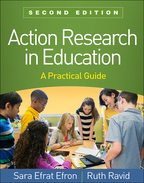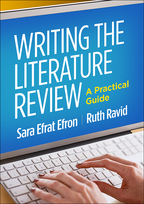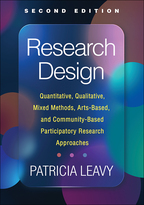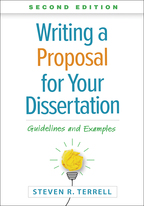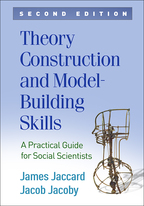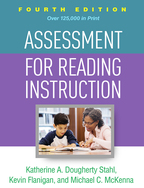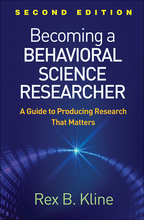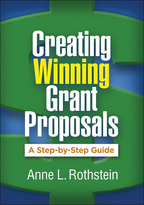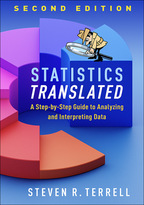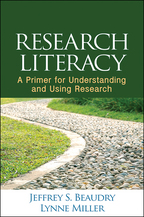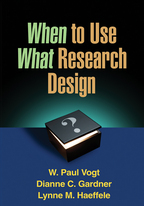Action Research in Education
Second Edition
A Practical Guide
Sara Efrat Efron and Ruth Ravid
HardcoverPaperbacke-bookprint + e-book
Hardcover
orderDecember 11, 2019
ISBN 9781462541621
Price: $90.00 276 Pages
Size: 7⅜" x 9¼"
Paperback
orderDecember 11, 2019
ISBN 9781462541614
Price: $60.00276 Pages
Size: 7⅜" x 9¼"
e-book
orderNovember 18, 2019
PDF and Accessible ePub ?
Price: $60.00 276 Pages
ePub is Global Certified Accessible
print + e-book $120.00 $72.00
orderPaperback + e-Book (PDF and Accessible ePub) ?
Price: 276 Pages
ePub is Global Certified Accessible
“If you are teaching a research class to novice researchers, especially those in education, I would highly recommend this book for its practical approach, and the emphasis on writing and the use of assessment data. Teachers are often overwhelmed with available data in their classrooms and schools—understanding as well as the data. This book provides much needed practical instructions for both issues.”

—Inquiry in Education (on the first edition)
“A solid overview of the essential components of action research, presented in a scholarly yet reader-friendly way. This text is excellent for our Master of Literacy program. It clearly depicts the six cyclical steps of action research, showing how research can continuously build our understanding of what works and what needs to be changed or adjusted. Unlike other action research texts that align only with qualitative research, the book discusses fundamentals of both qualitative and quantitative methods. The authors' emphasis on using the research questions to determine the research method(s) acknowledges the complexity of practitioner-based research. Practical and empowering, this book describes not only how to identify problems in educational settings, but also how to seek solutions through the cycle of research.”

—Cheryl A. Kreutter, PhD, School of Education, State University of New York at Geneseo
“I used this book for several years as the primary text for an online graduate course, Action Research, which serves as a capstone for master's of education students. From the opening pages, the authors set the stage for understanding action research as an important approach to making classroom decisions based on systematically collected data. The pedagogical features such as vignettes and exercises are a strength of the book. There is a clear attempt to access textual, visual, and hands-on channels of learning. Self-quizzes allow for guided review.”

—John H. Yoder, PhD, Core Faculty in Education (retired), Concordia University–Portland
“I have reviewed a number of action research texts, and, time and again, I return to Efron and Ravid’s book. It is simply the best available. With excellent content and depth, the text guides educators to conduct cycles of inquiry in their schools. It includes rich examples, tables, and figures to illustrate key concepts, as well as checklists to support action researchers.”

—Kimberly Kappler Hewitt, PhD, Division of Research, Discovery, and Innovation, School of Education, University of North Carolina at Greensboro
“This is an excellent introductory text for the novice action researcher. The authors cover both qualitative and quantitative methods and offer advice on using already existing assessment data in action research studies. The text is practical and applicable to a wide variety of educational contexts.”

—Linnea Rademaker, PhD, School of Educational Leadership, Abilene Christian University
“The book contains everything that I need in terms of content—it is a great introduction to action research. The writing style is its biggest strength. Many students are nervous about beginning to do research, and this book helps by presenting a step-by-step approach.”

—Eugene Geist, PhD, Department of Teacher Education, Ohio University
—Inquiry in Education (on the first edition)
“A solid overview of the essential components of action research, presented in a scholarly yet reader-friendly way. This text is excellent for our Master of Literacy program. It clearly depicts the six cyclical steps of action research, showing how research can continuously build our understanding of what works and what needs to be changed or adjusted. Unlike other action research texts that align only with qualitative research, the book discusses fundamentals of both qualitative and quantitative methods. The authors' emphasis on using the research questions to determine the research method(s) acknowledges the complexity of practitioner-based research. Practical and empowering, this book describes not only how to identify problems in educational settings, but also how to seek solutions through the cycle of research.”
—Cheryl A. Kreutter, PhD, School of Education, State University of New York at Geneseo
“I used this book for several years as the primary text for an online graduate course, Action Research, which serves as a capstone for master's of education students. From the opening pages, the authors set the stage for understanding action research as an important approach to making classroom decisions based on systematically collected data. The pedagogical features such as vignettes and exercises are a strength of the book. There is a clear attempt to access textual, visual, and hands-on channels of learning. Self-quizzes allow for guided review.”
—John H. Yoder, PhD, Core Faculty in Education (retired), Concordia University–Portland
“I have reviewed a number of action research texts, and, time and again, I return to Efron and Ravid’s book. It is simply the best available. With excellent content and depth, the text guides educators to conduct cycles of inquiry in their schools. It includes rich examples, tables, and figures to illustrate key concepts, as well as checklists to support action researchers.”
—Kimberly Kappler Hewitt, PhD, Division of Research, Discovery, and Innovation, School of Education, University of North Carolina at Greensboro
“This is an excellent introductory text for the novice action researcher. The authors cover both qualitative and quantitative methods and offer advice on using already existing assessment data in action research studies. The text is practical and applicable to a wide variety of educational contexts.”
—Linnea Rademaker, PhD, School of Educational Leadership, Abilene Christian University
“The book contains everything that I need in terms of content—it is a great introduction to action research. The writing style is its biggest strength. Many students are nervous about beginning to do research, and this book helps by presenting a step-by-step approach.”
—Eugene Geist, PhD, Department of Teacher Education, Ohio University

